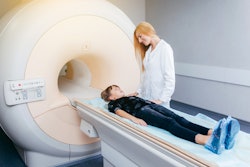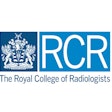There is work to be done to define how physician associates (PAs) -- or physician assistants, as they are sometimes called -- work in radiology, interventional radiology, and clinical oncology, the U.K. Royal College of Radiologists (RCR) noted in a statement on 18 July.
In an initial position statement issued in response to the government's Leng review, the RCR highlighted first and foremost that it does not foresee any role for PAs in diagnostic radiology and noted that PAs should not be requesting any clinical imaging investigations.
"The introduction of Physician Associates (PAs) in the National Health Service has raised serious concerns amongst some of our members, including about restricting training opportunities for resident doctors, a lack of regulation and scope creep," the RCR said. "Over time, we hope that a position will be reached where teams that include PAs consistently work safely and effectively, and that training opportunities for resident doctors are enhanced rather than compromised."
However, as advanced PA roles are developed, there is potential for their practice to be extended to request nonionizing radiation investigations, within doctor-led teams and acting under appropriate supervision, the RCR added.
The college also said there could be a limited, tightly defined role for PAs to support doctors working in interventional radiology, "with appropriate supervision." In addition, PAs have a place working in cancer multidisciplinary teams (MDTs) within clinical oncology.
Planning to define a clear scope of practice for PAs, the RCR said it will stay closely involved with the development of advanced PA roles as conversations progress, as well as influence NHS England’s forthcoming Medical Training Review anticipated later this year.
"In light of the consultant workforce shortage, expanding training numbers for resident doctors is essential," stated RCR Radiology Resident Doctors Forum Chair Dr. Aaron Taylor. "It is equally important to protect and maximise their training opportunities, which are already under strain. While the Leng review suggests a limited role for PAs in supporting physicians, this must remain within a clearly defined scope that does not compromise resident doctors’ training."
What will happen next is the establishment of two short-life working groups to define a clear, evidence-based scope of practice for PAs in interventional radiology and clinical oncology, the RCR said.
On 16 July, the U.K. government published the Leng review ("The Leng review: an independent review into physician associate and anaesthesia associate professions.")
You can read the full RCR response here.



















